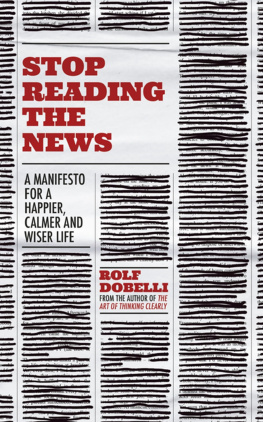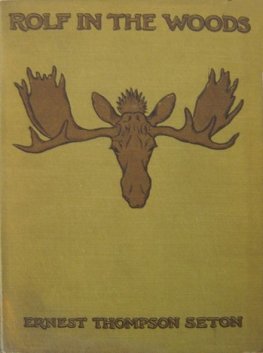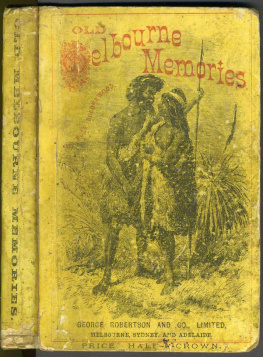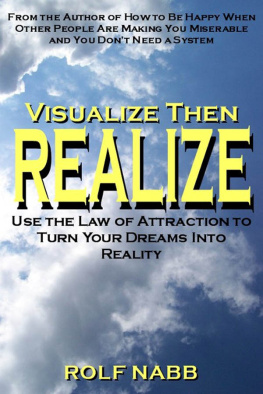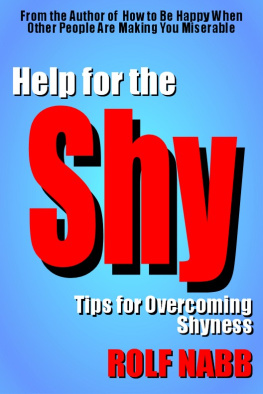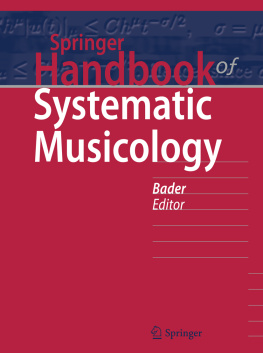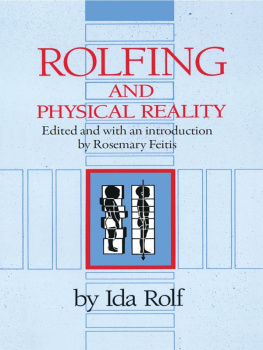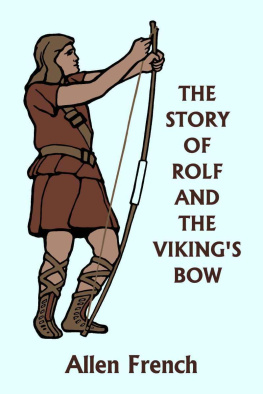Originally published in Germany in 2019 by Piper Verlag GmbH, Mnchen/Berlin
First published in Great Britain in 2020 by Sceptre
An Imprint of Hodder & Stoughton
An Hachette UK company
Copyright Rolf Dobelli 2019
Translation copyright Caroline Waight 2020
The right of Rolf Dobelli to be identified as the Author of the
Work has been asserted by him in accordance with
the Copyright, Designs and Patents Act 1988.
Cover image: Shutterstock
All rights reserved. No part of this publication may be reproduced,
stored in a retrieval system, or transmitted, in any form or by any
means without the prior written permission of the publisher, nor be
otherwise circulated in any form of binding or cover other than that
in which it is published and without a similar condition being
imposed on the subsequent purchaser.
A CIP catalogue record for this title is available from the British Library
Hardback ISBN 9781529342680
eBook ISBN 9781529342697
Hodder & Stoughton Ltd
Carmelite House
50 Victoria Embankment
London EC4Y 0DZ
www.sceptrebooks.co.uk
To my wife, Sabine, who stopped reading the news long before I did.
And to our twins, Numa and Avi, who thankfully are still too young for all that.
Contents
You Could Have Heard a Pin Drop
On 12 April 2013 I was invited by the Guardian to talk about my book The Art of Thinking Clearly , which had just been published in English. Each week an author is given the opportunity to briefly present his or her latest book to the editorial staff, and that week the honour was mine. Then editor-in-chief Alan Rusbridger gathered his staff. The room slowly filled with journalists, until roughly fifty of them were standing in front of me with their morning coffee in their hands, murmuring and waiting for Rusbridger to introduce me. My wife had come with me, and I was squeezing her hand as I tried to keep my nerves in check. These were the brightest minds at one of the worlds most prominent newspapers, and I had been given the unique privilege of sharing with them a few of my aperus from the world of cognitive science in the hope that one of them would write about my book. After clearing his throat, Rusbridger got to his feet and said dryly, I was just on your website and noticed your new article. Id like you to speak about that, not about your new book.
I wasnt prepared for this. On the tip of my tongue were various practised, hopefully convincing, well-formulated observations on The Art of Thinking Clearly , which ideally would find their way unaltered into the pages of the Guardian . I swallowed them. The article Rusbridger had found on my website listed the most important arguments against consuming precisely what these internationally respected professionals spent their days producing: the news. Throwing caution to the wind, I began to talk, serving up reason after reason for why its best to avoid the news. Now, instead of standing in front of fifty people well disposed to me, I was confronted by fifty opponents. Caught in the crossfire of their stares, I tried to stay as calm as possible.

